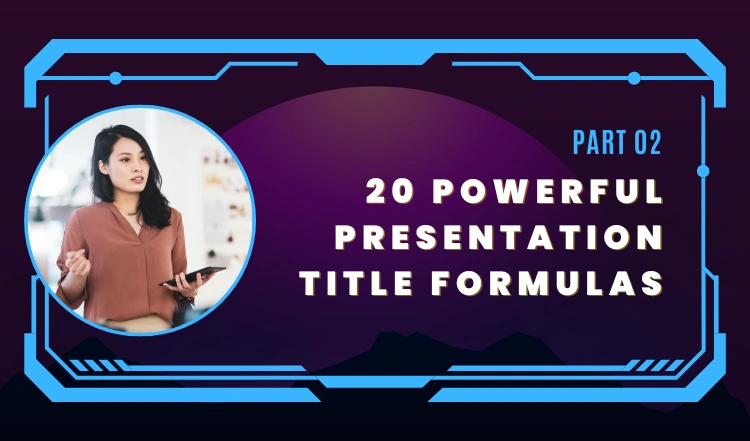Becoming an expert in your community isn’t as hard as it might seem. One way to break into your local small business scene is to host local business-oriented workshops. You can host them free or paid, depending upon the demand for the events. Either way, hosting workshops, training seminars, or some other type of live event is a great way to become known as the go-to expert in your niche.
It’s not as challenging as you may assume. In truth, there are only three major components to the entire process.
First, you should know a little something about hosting an event.
Next, as you’ll want your event to be a success, you need to know something about how to attract people to attend.
And finally, you want your presentation to be amazing and memorable and build up your brand and authority.
Three components, and all three are broken down for you below (how convenient).
The Event: A Quick Overview
Choose the Topic and Theme of Your Event
Before you choose anything else, it’s important to know what the topic and theme of your event will be. This will help you determine the size of the event, the cost, and many other factors related to planning and hosting the event.
Determine Your Budget
Now that you know your topic, it’s important to set a budget for the event. You will likely have a fee for the facility that you chose to use for the event. You may need to pay for technology, food, beverages, and other comforts for your attendees. Plus, you’ll need copies of physical documentation to hand out to your workshop attendees.
Secure a Room for Your Event
Once you have set your budget, decided how big the workshop should be and all those details, it’s time to get a site for your workshop. You have the information about what you need, so now you can make calls and visit the sites in person to ensure it’s what you want.
Set the Date
Once you find the location, work with them to set the date for your event at least six weeks from now, so that you can get everything planned and marketed in time. When it comes to workshops, you don’t really need a year to plan. It’s better to keep the marketing and advertising for the event short.
Prepare Documentation
Now that you have all the information from above, it’s time to start preparing all the documentation for your event. You will need handouts, and something tangible for the attendees like a t-shirt, a workbook, pens, and other branded premiums that they can take with them.
Create Marketing Materials
Simultaneously, as you’re doing the above, you’ll need to create marketing materials. Have an event website, online event sign-up, social media pages, newspaper advertisements, and any other marketing materials that you need to run ads online and offline.
Educate, Inform, and Engage Your Audience
While you’re working on the above, keep using the platforms that you’ve created to educate, inform, and engage your audience. Continue to go to other events as you let your audience know about your workshop.
Market Online and Offline
Don’t limit your marketing to only online or only offline for local events. Using Facebook Ads, you can laser target your local community directly, but you should also look to your local newspapers and other avenues for getting the word out about your event.
Relax and Network
Once you arrive at your workshop date, know that you’re prepared, and know your expertise, all you really need to do is relax and network. Let the event unfold as it should and don’t sweat the details now because you already did that in the planning stages.
Don’t worry if your event isn’t perfect. The important thing is to be there and provide excellent value to your audience. Even if only five people show up, that’s five people who are going to tell their friends about what they learned and from whom.
With that said (and meant), you’d probably rather have the event be a massive success. Find out in the next session how to pack your live event with attendees.
How to Attract Local People to Your Events
Hosting local training events for your online audience is an excellent opportunity to include your local community in your business. If you have mostly done everything online or with long-distance people hosting, a training event in your local area can be just the thing to enable you to start getting known locally as an expert too.
Give Yourself Enough Lead Time
For a small workshop, you don’t need more than a few weeks. About six weeks is a good lead-up time to find a location, get ads in the local paper, and let enough people know about your local training event. If you plan to host hundreds, though, consider giving yourself a year lead time.
Develop Awesome Promotional Materials
Focus some of your promotional materials on your local audience. When you laser focus on who you want to attend, it’s going to help them find out about the event and sign up for it. If you don’t focus any of your marketing locally, you may not get very many locals.
Focus on Benefits of Attending
Remember that for all your advertising and marketing, you want to focus on the benefits the attendees will receive for attending your event. When you do that and think only of them for all your marketing materials, it will be clear to them why they should come to your training event because they’ll know what they’re going to learn and why they should learn it.
Use Many Types of Media to Get the Word Out
Don’t stick to online marketing for local events. Include many types of advertising and marketing to get the word out, from local newspapers, local TV, local radio shows, and more.
Partner Up with Someone Else
Sometimes you can get more people to attend an event when you partner up with someone else who is also an expert in your community. Remember that there is no competition, only completion, when you partner up with others who offer complementary products and services to yours.
Set Up a Simple Registration System
Even though your event is local, you can still allow for event registration via online methods. But it’s also a good idea to allow people to phone you to sign up. Not everyone locally will be technologically ready to sign up online. But you can also use this as a weeding method if you prefer trainees who are more used to online tech.
Network at Other People’s Events
Even though you’re busy preparing for your own event, it’s not the time to slow down with networking and going to other people’s events. Giving people information about your event when you socialize is an excellent way to get more locals to attend.
Follow Up
When someone sends a question about your event, signs up for your event, or engages with you on any level, it’s imperative that you make it a habit to follow up. If they get on an email list, ensure you have a follow-up series in place. If you meet them in person, get their info so that you can arrange more meetings.
Opening a few seats to get local people in can help set you up for future (mostly local) events and workshops, building your expertise profile while you do it. Local training events are one of the best ways to break into the local small business community as an expert.
How to Deliver Memorable Workshops and Training Seminars
Workshops and training may be very popular, but often they’re not very memorable. Even when people learn things, they can be boring. After all, sitting in a chair or at a table listening to other people drone on can be hard for many people. But thankfully, with just a little knowledge, you can deliver memorable workshops and training seminars.
Identify Your Target Market
Everything starts with your target audience. Even though you likely already have an audience in mind when you are planning in-person events like these, you need to double down and laser-focus your audience on a whole new level so that your materials are meaningful to the audience.
Find the Message You Want to Deliver
Once you know who your audience will be, you can define the message you want to deliver. This will be the overarching theme of your event that informs the topic. Try writing in two or three sentences what you want attendees to learn, think, and feel by attending your event. Then make sure that everything you do fits that goal.
Get to Know Your Group
When you show up for your event, don’t just appear when it’s time for you to speak. Instead, socialize outside the event with your group. That way you’ll know more about them and can adjust your talk to fit the audience better. Planning socializing into the event timing will assist you greatly in accomplishing that.
Tell a Story, Don’t Lecture
Instead of approaching the event like a teacher, approach it as someone who is telling a story and setting up a picture for your audience. When you can weave a story into what you want them to learn, they’re going to be more likely to remember it – especially if you include them.
Encourage and Facilitate Discussion
Don’t just stand up there and talk. Try having a discussion with your audience. Ask them questions, let them answer, and draw them through your story and the lessons you want them to learn from your presentation with encouragement and back-and-forth participation.
Account for Different Learning Styles
When you plan your presentation, remember that there are going to be several different learning styles. Some people learn well by listening to a lecture, but most people need some form of stimulation and demonstration. Making the event more hands-on will help include all learning types.
Shake Up the Order of Things
When most people go to conferences, workshops, and other types of events and training, everything usually looks the same. They check in, go to their rooms, and then show up for the first speaker and sit in the rooms of seats and tables. But you can shake up things by having a social hour before the first speaker with breakfast, or you can change up the seating so that people are in a circle instead of rows. It really depends on the event and how many are there.
Have Fun
Don’t forget that workshops, training, and seminars are also fun. You can have fun while you’re speaking, and you can have fun with business events. Everything doesn’t have to be serious all the time. You want to maintain some level of professionalism depending on your audience, but you don’t have to be all business all the time.
Follow Up
The one thing that makes things memorable about any event is the follow-up. How do you continue to engage the people who attended your event over time? You can set up email, already have the date ready for pre-sign-up for the next event at the first event, and more. Building those long-term relationships will go far in helping you host memorable events.
If you really want people to remember your workshop, training, or seminars, it’s imperative to understand your audience, know your topic, and then focus on building relationships and sharing your story and their story. When you get more interaction with your audience, they tend to remember more.





